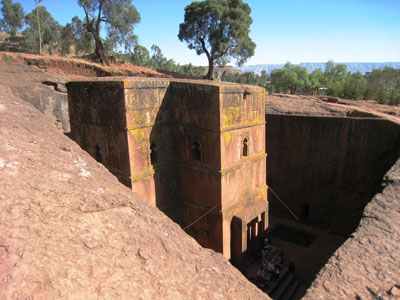Ethiopian People
Ethiopia is its peoples
To the discerning traveler, the people of Ethiopia hold as big an attraction as the other natural and historical wonders.
It is beyond the scope of this web page to cover all aspects of the cultural features and histories of the various peoples of Ethiopia.
We just want to point out that it will be very difficult to fully appreciate the magnificence of the various historical and cultural wonders of Ethiopia without understanding the characteristics of the major actors in that history and culture. It will be very rewarding to the serious traveler to have some idea regarding the various peoples among whom he or she will be living and traveling.
During your travels to the northern historic routes, you will be passing among the Amhara and the Tigre and while you are visiting the Eastern Historic routes you will be meeting the Haderes and the Argoba Oromo. During your visit to the south you will be meeting the other Oromo clans, multitude ethnic groups of the southern Ethiopia, focusing mainly on the indigenous cultures of the OMo Valley.
When you will be making the highly demanding and highly rewarding adventure trip to the Danakil, you will be among the Afar people, who are renowned for their ferocity and xenophobia, and have been living in that inhospitable land for over two thousand years.
Real Hospitality
It is usual to find quite a number of beggars and pick-pockets in the big cities. You will, however observe a certain level of pride and dignity among the country-side folks of all ethnic groups. Most are very poor to offer you anything worthwhile, but because of their deep rooted sense of hospitality, they will offer you whatever they have with a smile and genuine good will towards strangers.
As Ethiopia was never colonized, our peoples do not have mixed feelings towards strangers. They do not see them as past colonizers and masters, but as guests. Some of them may show a certain amount of reservations at first, but once they know of your good intentions and that you came just to visit them and know about them, they do welcome you with open arms. As a result you feel a deep sense of being safe all the time.
'Unity with Diversity'
From time to time one may observe minor squabbles among various tribes because of grazing lands or family feuds. Over all, however, these multi-cultured peoples of Ethiopia have been living side by side with each other harmoniously for centuries, despite their cultural and religious differences.
Before Ethiopia was administered under a central government, the various warlords and kings used to fight with each other for loots, dominance and sometimes for the sheer 'adventure' of fighting. Some even yearned for battles because they had the notion that battle-fields were where they can display their bravery for all to see.
The amazing thing is that all the kings, even those that are sworn enemies, will unite under a common front when it comes to standing against external aggressions.
Hence, although the various Ethiopian peoples have their differences, they have much more in common. These common values and heritages bind the Ethiopian peoples together.










